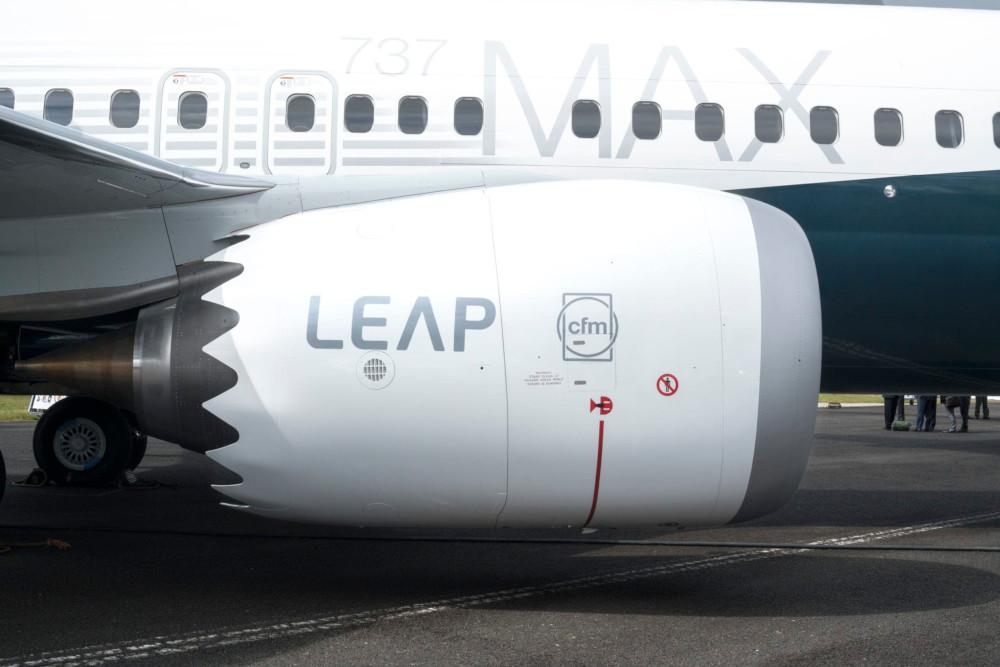
The Leap 1B engine powers Boeing 737 MAX aircraft.
BARCELONA, Spain—Israel Aerospace Industries (IAI) will increase its CFM International Leap engine capabilities next year following recent regulatory approval for the 1A and 1B variants to start conducting quick-turn services on the new-generation powerplant.
Earlier this month, the Tel Aviv-based company announced it had gained certification for the narrowbody engine type, which is the sole powerplant option for Boeing 737 MAX aircraft. The Leap 1B approval follows its FAA and European Aviation Safety Agency (EASA) certification for the Leap 1A, which powers the Airbus A320neo program. IAI was given the green light—initially for quick-turn engine services—in July 2024.
Ido Ben Cnaan, vice president and general manager of IAI's MRO division, IAI Aviation Group, says it has ordered the tooling for the engine and has recently received its FAA certification, with its EASA counterpart expected to arrive sometime in November. Cnaan says IAI is on course to receive its first Leap engine next month.
"In 2025 we will perform the quick-turns engines. Additionally, we are also purchasing the tooling for the CPR and the fan module,” he says.
The following year in the first quarter of 2026, IAI plans to get certification for the correlation of test cells for the Leap at its Tel Aviv facility. “Once you have the certificate for the test cell you can perform full overhauls and of course test the engines,” Cnaan says. The company operates seven test cells up to 70,000-lb.-thrust, and Cnaan says it has earmarked test cells five and six to have dual capability for both 1A and 1B models.
Between 2025 and 2026, he estimates that IAI will be inducting 80 to 100 Leap engines annually. But following test cell correlation and a planned additional facility for engine maintenance set to be built by 2027, IAI plans to increase its number of annual Leap engine inductions to 250 engines per year.
“We’ve already allocated the land and the investment has been committed to the new facility,” adds Lior Cohen, director for marketing and business development at IAI, who says it currently operates 15 hangars in Tel Aviv, where it conducts base maintenance, engine MRO, component and landing gear repairs and passenger-to-freighter conversion work, converting 747, 767, 777, 737NG and 737 Classic aircraft.
Cnaan adds that the expansion of its Tel Aviv operation would alleviate some capacity constraints related to the engine market, where he says demand is very strong, which often leads to delays to some inductions due to a lack of slot availability. Adding in factors such as OEM production issues and the current state of the industry supply chain, Cnaan says lead times on engines are extended, with some facing lags way beyond the 60-70-day average. “Some Leap engines are exceeding more than 200 days in the shop,” he adds. “If there are engines already taking up slots, this makes it difficult to induct more engines.”
The latest approvals add to IAI’s commercial engine maintenance offerings, which also include CFM56-3/5/7s, IAE V2500s, Pratt & Whitney PW4000s and several auxiliary power unit models.





